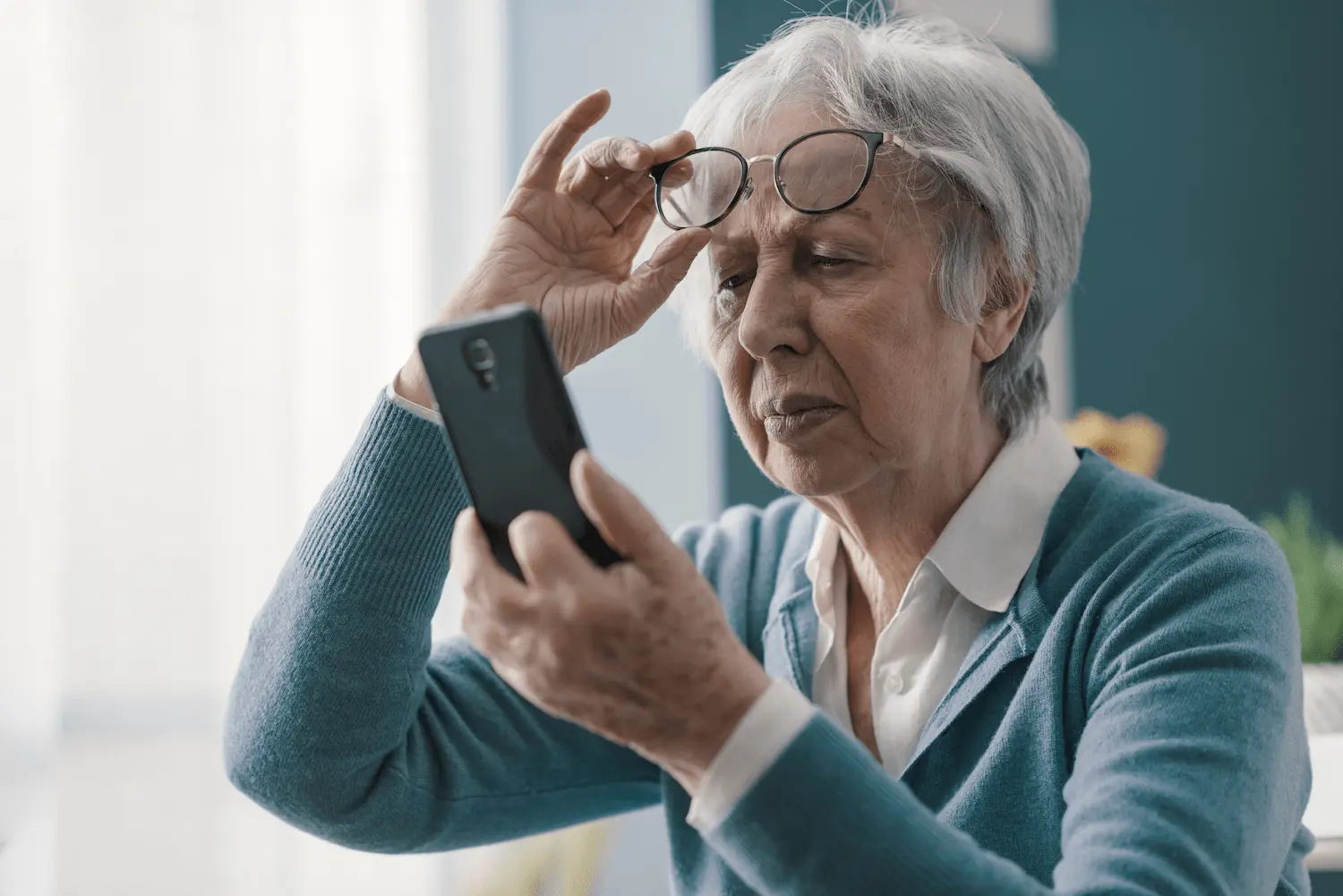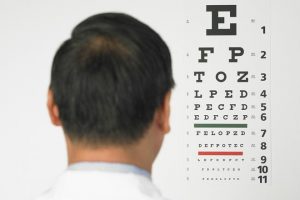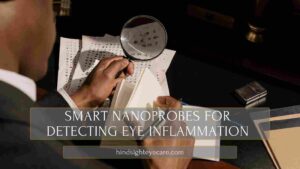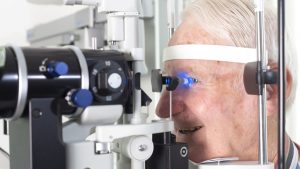What is Macular Degeneration in Leesburg?
Macular degeneration is a leading cause of vision loss in older adults, affecting the central part of the retina known as the macula.
This progressive condition can significantly impact a person’s ability to perform everyday tasks, such as reading, driving, and recognizing faces. Fortunately, there are various treatment options available in Leesburg to manage the condition and potentially slow its progression.
Understanding Macular Degeneration
Macular degeneration is a chronic eye condition that primarily affects the macula, the central part of the retina responsible for sharp, central vision. As the condition progresses, the macula can become damaged, leading to a gradual loss of detailed, straight-ahead vision. This can make it increasingly difficult to perform tasks that require clear, direct vision, such as reading, driving, and recognizing faces.
Risk Factors for Macular Degeneration
Several factors can increase an individual’s risk of developing macular degeneration. These include:
- Age: The risk of macular degeneration increases significantly as people grow older, with the condition being most common in individuals over the age of 60.
- Family history: Genetic factors play a role in the development of Macular Degeneration in Leesburg, and individuals with a close relative who has the condition are at a higher risk of developing it themselves.
- Smoking: Smoking is a significant risk factor for Macular Degeneration in Leesburg, and smokers are more likely to develop the condition compared to non-smokers.
- Obesity and high blood pressure: These health conditions have been linked to an increased risk of macular degeneration.
- Exposure to UV light: Prolonged exposure to ultraviolet (UV) light from the sun may contribute to the development of macular degeneration.
Symptoms of Macular Degeneration
The symptoms of macular degeneration can vary depending on the type and stage of the condition. Some common symptoms include:
Blurred or distorted central vision: Individuals with macular degeneration may experience difficulty reading, recognizing faces, or performing other tasks that require clear, central vision.
Difficulty adapting to low light: As the condition progresses, patients may have trouble adjusting to dimly lit environments, such as a movie theater or a dark room.
Sensitivity to glare and bright light: Some patients with macular degeneration report increased sensitivity to bright light and glare, which can make it challenging to perform tasks in well-lit environments.
Gradual vision loss: In the early stages of macular degeneration, vision loss may be gradual and barely noticeable. However, as the condition progresses, the loss of central vision can become more pronounced.
Diagnosing Macular Degeneration in Leesburg
If you are experiencing any of the symptoms associated with Macular Degeneration in Leesburg it is essential to schedule an appointment with an eye care professional in Leesburg. During the diagnostic process, your healthcare provider will perform a thorough examination, which may include the following:
- Visual acuity test: This test measures your ability to read an eye chart, which can help assess the extent of your vision loss.
- Dilated eye examination: Your eye doctor will dilate your pupils and use specialized instruments to examine the back of your eye, including the macula, for signs of macular degeneration.
- Imaging tests: Your healthcare provider may recommend imaging tests, such as optical coherence tomography (OCT) or fluorescein angiography, to obtain detailed images of the retina and detect any changes or abnormalities.
Based on the results of these tests, your eye care provider in Leesburg will be able to determine the type and stage of macular degeneration you are experiencing, which will guide the most appropriate treatment plan.
Here you like Scheduling Your Next Eye Exam at Hindsight Eye Care: What Patients in Leesburg, FL Need to Know
Treatment Options for Macular Degeneration in Leesburg
The treatment approach for Macular Degeneration in Leesburg in Leesburg will depend on the type and severity of the condition. While there is no cure for Macular Degeneration in Leesburg, there are several treatment options available that can help manage the condition and potentially slow its progression:
Dry Macular Degeneration Treatment
For individuals with dry Macular Degeneration in Leesburg, the primary treatment approach in Leesburg may involve the following:
Dietary supplements: Research has shown that certain dietary supplements, such as those containing antioxidants, zinc, and omega-3 fatty acids, may help slow the progression of dry Macular Degeneration in Leesburg.
Low-vision aids: Your eye care provider in Leesburg may recommend the use of low-vision aids, such as magnifiers, high-contrast reading materials, or specialized lighting, to help you adapt to the changes in your vision.
Lifestyle modifications: Making lifestyle changes, such as quitting smoking, maintaining a healthy diet, and protecting your eyes from UV light exposure, can help slow the progression of dry Macular Degeneration in Leesburg
Wet Macular Degeneration Treatment
For individuals with wet Macular Degeneration in Leesburg, the treatment approach in Leesburg may include the following:
Anti-VEGF injections: These medications, administered through injections into the eye, help block the growth of abnormal blood vessels and reduce the leakage and bleeding that can occur in wet Macular Degeneration in Leesburg.
Laser therapy: In some cases, your eye care provider in Leesburg may recommend laser therapy to destroy the abnormal blood vessels and slow the progression of wet macular degeneration.
Photodynamic therapy: This treatment involves the use of a photosensitive drug and a specialized laser to selectively target and destroy the abnormal blood vessels.
It is important to note that the specific treatment plan for macular degeneration in Leesburg will be tailored to your individual needs and the progression of your condition. Your eye care provider will work closely with you to develop the most appropriate treatment approach and monitor your progress over time.
Preventing Macular Degeneration in Leesburg
While there is no guaranteed way to prevent Macular Degeneration in Leesburg, there are several steps you can take to reduce your risk and maintain healthy vision in Leesburg:
- Quit smoking: Smoking is a major risk factor for Macular Degeneration in Leesburg, so quitting this habit can significantly lower your risk.
- Maintain a healthy diet: Incorporating foods rich in antioxidants, such as leafy greens, fruits, and fish, can help support eye health and potentially reduce the risk of macular degeneration.
- Protect your eyes from UV light: Wearing sunglasses or hats with brims can help shield your eyes from harmful UV radiation, which may contribute to the development of macular degeneration.
- Regularly visit your eye care provider in Leesburg: Regular comprehensive eye exams can help detect Macular Degeneration in Leesburg in its early stages, allowing for prompt treatment and management of the condition.
By taking proactive steps to maintain your eye health and regularly monitoring your vision, you can help reduce your risk of Macular Degeneration in Leesburg and preserve your quality of life in Leesburg.
FAQs
What is the difference between dry and wet macular degeneration?
Dry macular degeneration is the most common form and develops gradually, while wet Macular Degeneration in Leesburg is a more aggressive type that can cause rapid vision loss due to the growth of abnormal blood vessels.
Can macular degeneration be cured?
There is no cure for macular degeneration, but various treatments can help manage the condition and potentially slow its progression.
How can I reduce my risk of macular degeneration?
Quitting smoking, maintaining a healthy diet, protecting your eyes from UV light, and regularly visiting your eye care provider in Leesburg can help reduce your risk of macular degeneration.
What are the symptoms of macular degeneration?
Common symptoms of macular degeneration include blurred or distorted central vision, difficulty adapting to low light, sensitivity to glare and bright light, and gradual vision loss.
How is macular degeneration diagnosed in Leesburg?
Eye care professionals in Leesburg use various tests, such as visual acuity tests, dilated eye examinations, and imaging tests, to diagnose and determine the type and stage of Macular Degeneration in Leesburg.




